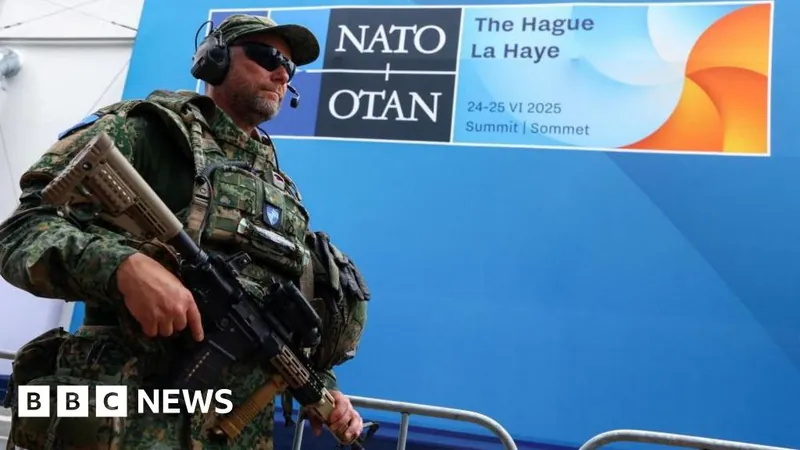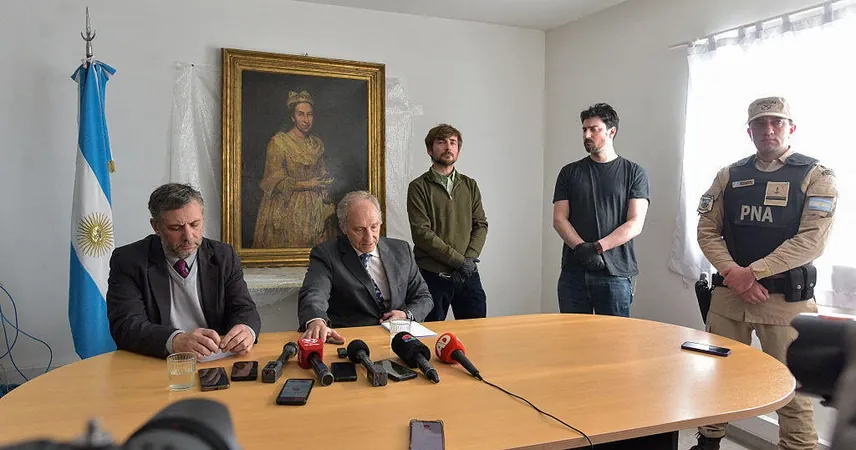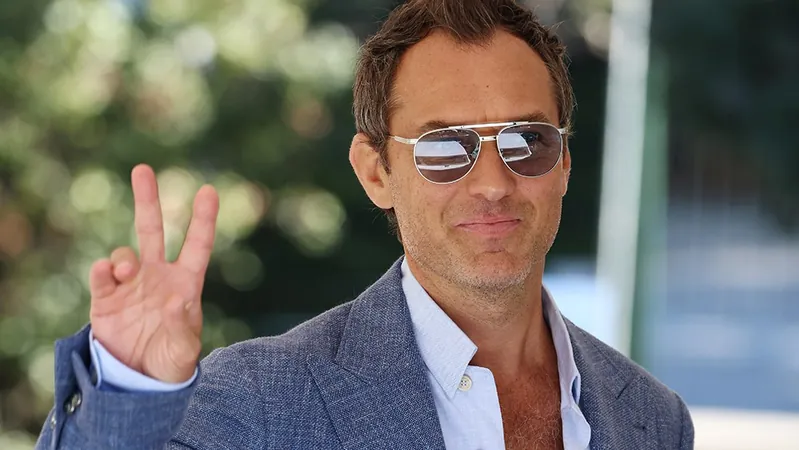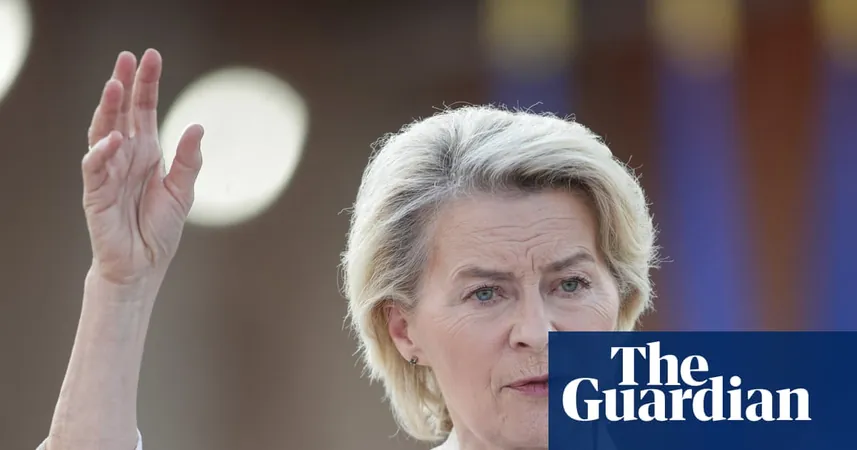
Germany Steps Up: Vows a Robust Defence Contribution at Historic NATO Summit in The Hague
2025-06-24
Author: Chun
A Defining Moment for NATO and Europe
As the leaders of NATO converge in The Hague, German Chancellor Friedrich Merz has declared that Germany will fulfill its "fair share" of Europe’s defense responsibilities amid rising tensions with Russia. This pivotal summit aims not just to address present challenges but to secure peace for generations to come.
Confronting Aggression: Germany's Stand Against Russia
At a parliamentary address preceding the summit, Merz emphasized that Russia's President Vladimir Putin only responds to strength, asserting his belief that Putin seeks to reintegrate Ukraine into Russia. With Germany's commitment to defense spending, the message to Moscow is clear: Europe will stand united and resolute.
Big Plans Ahead: Investment and Spending Goals
President Donald Trump, attending his first NATO summit since 2019, is joined by leaders from all 32 nations, where together they aim to increase defense spending to a jaw-dropping 3.5% of each country's GDP, alongside an additional 1.5% on defense infrastructure. This ambitious commitment comes as NATO grapples with recent violent escalations in Ukraine.
The Ukrainian Crisis: A Stark Reminder
The backdrop of the summit is grim, with Ukraine continuing to face devastating assaults, including recent strikes resulting in multiple casualties and injuries. Chancellor Merz reiterated the need for sustained military support for Ukraine, which Europe has pledged significantly, surpassing $35 billion this year alone.
Historic Meetings: The Power of Alliances
As the summit unfolds, key meetings are planned, including a significant encounter between President Trump and Ukrainian President Volodymyr Zelensky—a reunion since their last meeting at Pope Francis's funeral in April. This high-stakes conversation could shape future alliances and strategies.
Redefining Defense Standards: NATO's New Goals
A major highlight of this summit is the introduction of a new investment plan, proposing to elevate the defense expenditure benchmark to 5% of GDP, more than double NATO's current 2% guideline. With many nations currently falling short of the 3% target set for 2035, Germany’s recent budget deal reflects a serious commitment to reaching these ambitious goals by 2029.
Tensions Over Spending Targets
While NATO countries are expected to endorse this new pledge, debates continue among members like Spain, where the defense budget lags at under 1.3%. Spanish Prime Minister Pedro Sánchez's resistance to increasing military funding, citing economic concerns, has sparked discussions about potential exemptions—adding tension to the summit.
Unexpected Challenges: Infrastructure and Security Concerns
As world leaders travel to The Hague, unexpected challenges arise. Train services in the area were disrupted due to fire-damaged cables, with authorities investigating the cause. Security Minister David Van Weel raised alarm bells, emphasizing that the incident might involve sabotage, potentially affecting logistics as crucial discussions take place.
Will This Summit Revitalize NATO?
As the summit progresses, the world watches closely. With the potential for unprecedented alliances, investment commitments, and a robust defense plan on the horizon, The Hague summit could mark a turning point for NATO in an era of global uncertainty. Can NATO emerge stronger and more unified in the face of growing threats? Only time will tell.





 Brasil (PT)
Brasil (PT)
 Canada (EN)
Canada (EN)
 Chile (ES)
Chile (ES)
 Česko (CS)
Česko (CS)
 대한민국 (KO)
대한민국 (KO)
 España (ES)
España (ES)
 France (FR)
France (FR)
 Hong Kong (EN)
Hong Kong (EN)
 Italia (IT)
Italia (IT)
 日本 (JA)
日本 (JA)
 Magyarország (HU)
Magyarország (HU)
 Norge (NO)
Norge (NO)
 Polska (PL)
Polska (PL)
 Schweiz (DE)
Schweiz (DE)
 Singapore (EN)
Singapore (EN)
 Sverige (SV)
Sverige (SV)
 Suomi (FI)
Suomi (FI)
 Türkiye (TR)
Türkiye (TR)
 الإمارات العربية المتحدة (AR)
الإمارات العربية المتحدة (AR)